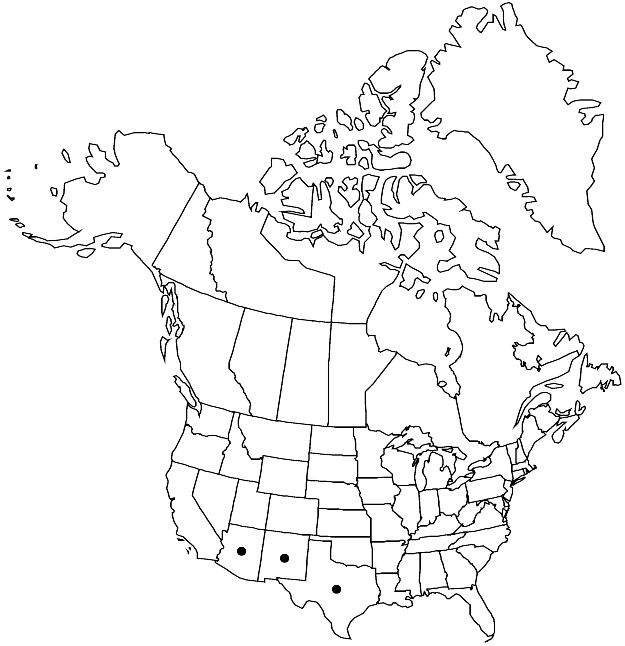Difference between revisions of "Koeberlinia spinosa var. wivaggii"
Brittonia 60: 180, figs. 2D, 4. 2008.
Treatment appears in FNA Volume 7. Treatment on page 185.
FNA>Volume Importer |
imported>Volume Importer |
||
| (One intermediate revision by the same user not shown) | |||
| Line 46: | Line 46: | ||
|publication year=2008 | |publication year=2008 | ||
|special status= | |special status= | ||
| − | |source xml=https:// | + | |source xml=https://bitbucket.org/aafc-mbb/fna-data-curation/src/2e0870ddd59836b60bcf96646a41e87ea5a5943a/coarse_grained_fna_xml/V7/V7_238.xml |
|genus=Koeberlinia | |genus=Koeberlinia | ||
|species=Koeberlinia spinosa | |species=Koeberlinia spinosa | ||
Latest revision as of 22:32, 5 November 2020
Plants 1–3 m; young thorns densely puberulent; mature thorns 20–60 mm, 2–3.4 mm at base (15 or less times longer than base width). Flowers: petals ca. 3 mm; style 0.4–0.7 mm, straight (sometimes slightly curved when dry); gynophore (stipe) 0.3–0.5 mm.
Phenology: Flowering Jun–Jul.
Habitat: Desert flats, hillsides, arroyos
Elevation: 100-2100
Distribution

Ariz., N.Mex., Tex., Mexico (Chihuahua, Coahuila, Durango, Nuevo León, San Luis Potosí, Sonora, Zacatecas).
Discussion
Variety wivaggii is primarily a taxon of the Chihuahuan Desert, occurring in a region between the more easterly var. spinosa and the more westerly var. tenuispina.
Selected References
None.
Lower Taxa
None.